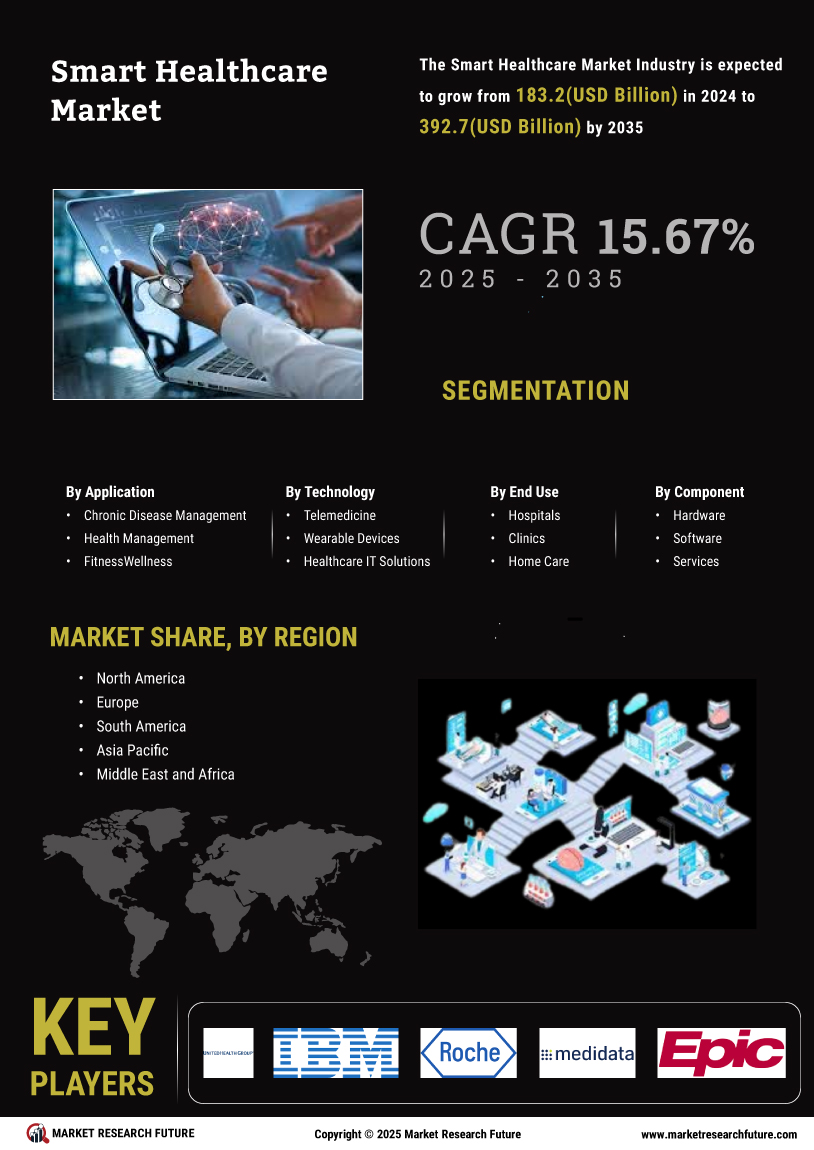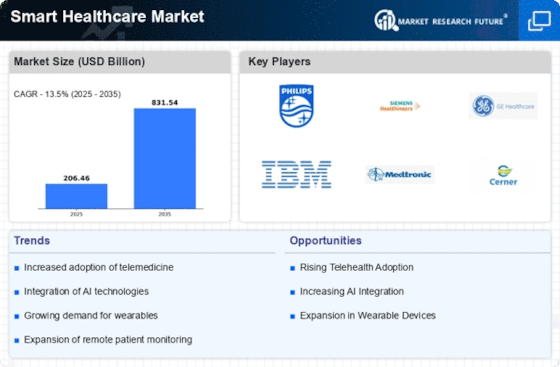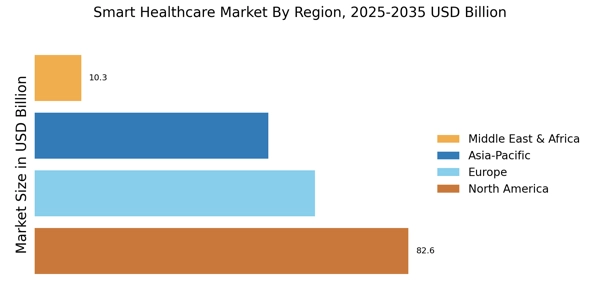Rising Focus on Patient-Centric Care
The Smart Healthcare Market is increasingly emphasizing patient-centric care models, which prioritize the needs and preferences of patients in the healthcare process. This shift is driven by a growing recognition of the importance of patient engagement in improving health outcomes. Healthcare providers are adopting technologies that facilitate better communication and collaboration with patients, such as mobile health applications and telehealth services. Research suggests that patient-centric approaches can lead to higher satisfaction rates and improved adherence to treatment plans. As a result, the Smart Healthcare Market is likely to witness a proliferation of solutions designed to empower patients, enabling them to take an active role in their healthcare journey. This trend may also foster a more transparent and responsive healthcare system.
Advancements in Health Data Interoperability
Advancements in health data interoperability are playing a crucial role in the evolution of the Smart Healthcare Market. The ability to seamlessly exchange health information across different systems and platforms is essential for enhancing care coordination and improving patient outcomes. Recent initiatives aimed at standardizing health data formats and protocols are gaining traction, which could potentially lead to a more integrated healthcare ecosystem. The interoperability of health data not only facilitates better communication among healthcare providers but also empowers patients by giving them access to their health information. As the Smart Healthcare Market continues to evolve, the emphasis on interoperability is likely to drive innovation and the development of new solutions that enhance the overall efficiency of healthcare delivery.
Increased Demand for Remote Patient Monitoring
The Smart Healthcare Market is experiencing a notable surge in demand for remote patient monitoring solutions. This trend is largely driven by the need for continuous health tracking and management, particularly among chronic disease patients. According to recent estimates, the remote patient monitoring segment is projected to grow at a compound annual growth rate of over 25% in the coming years. This growth is attributed to advancements in telecommunication technologies and the increasing adoption of Internet of Things (IoT) devices. As healthcare providers seek to enhance patient engagement and reduce hospital readmissions, remote monitoring solutions are becoming integral to healthcare delivery. The Smart Healthcare Market is thus witnessing a shift towards more proactive and personalized care models, which could potentially improve patient outcomes and optimize healthcare resources.
Growing Investment in Health Technology Startups
The Smart Healthcare Market is witnessing a surge in investment directed towards health technology startups. Venture capital funding in this sector has seen exponential growth, with investments reaching billions of dollars annually. This influx of capital is fostering innovation and the development of cutting-edge solutions that address various healthcare challenges. Investors are particularly interested in startups that leverage technology to improve patient care, streamline operations, and enhance data management. As a result, the Smart Healthcare Market is likely to benefit from a diverse array of new products and services that emerge from this vibrant startup ecosystem. This trend not only stimulates competition but also accelerates the pace of technological advancement in healthcare.
Integration of Artificial Intelligence in Healthcare
The integration of artificial intelligence (AI) into the Smart Healthcare Market is transforming the landscape of healthcare delivery. AI technologies are being utilized for predictive analytics, diagnostic assistance, and personalized treatment plans. Recent studies indicate that the AI healthcare market is expected to reach approximately USD 36 billion by 2025, reflecting a robust growth trajectory. This integration not only enhances operational efficiency but also improves clinical decision-making processes. AI algorithms can analyze vast amounts of data to identify patterns and trends that may not be apparent to human practitioners. Consequently, the Smart Healthcare Market is likely to see an increase in the adoption of AI-driven solutions, which may lead to more accurate diagnoses and tailored treatment options for patients.

















